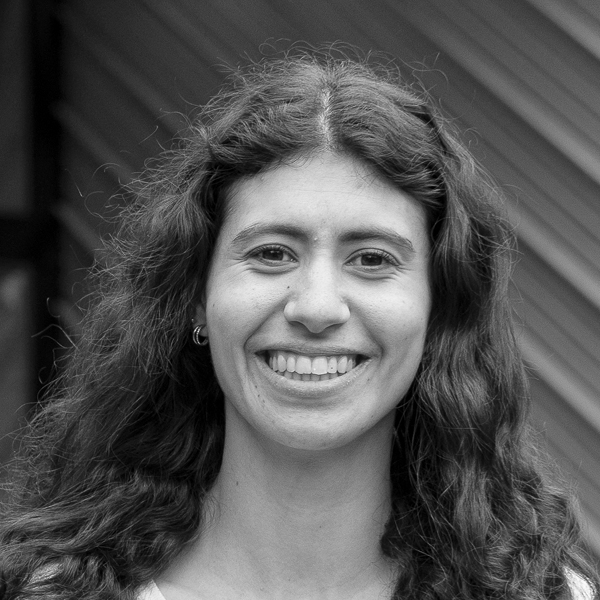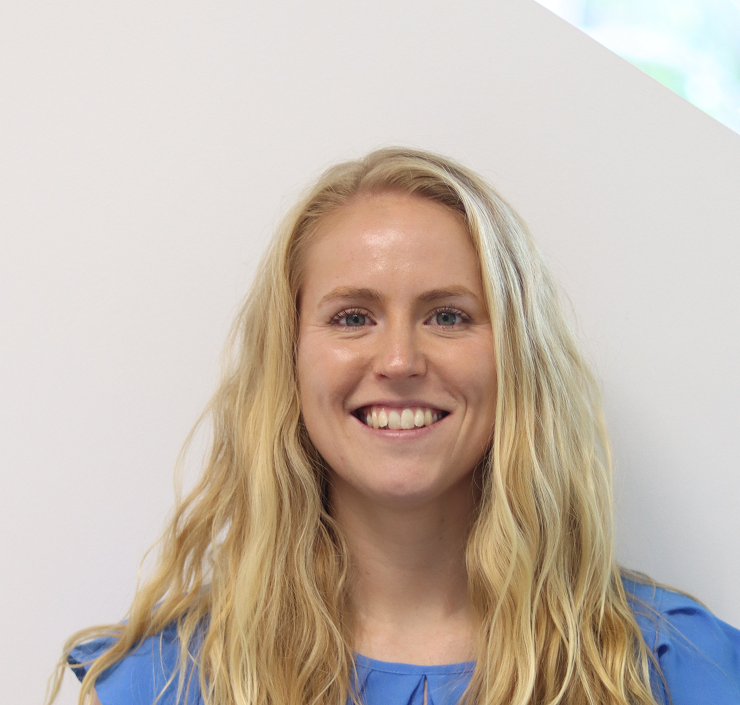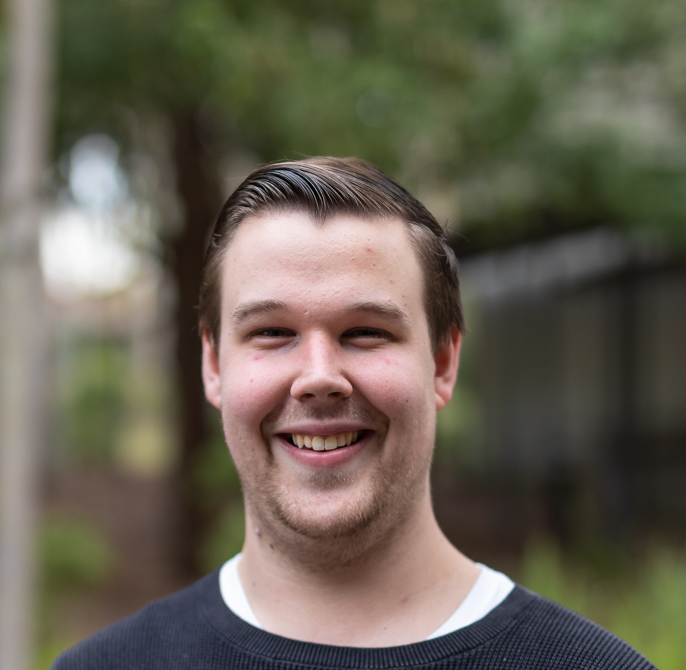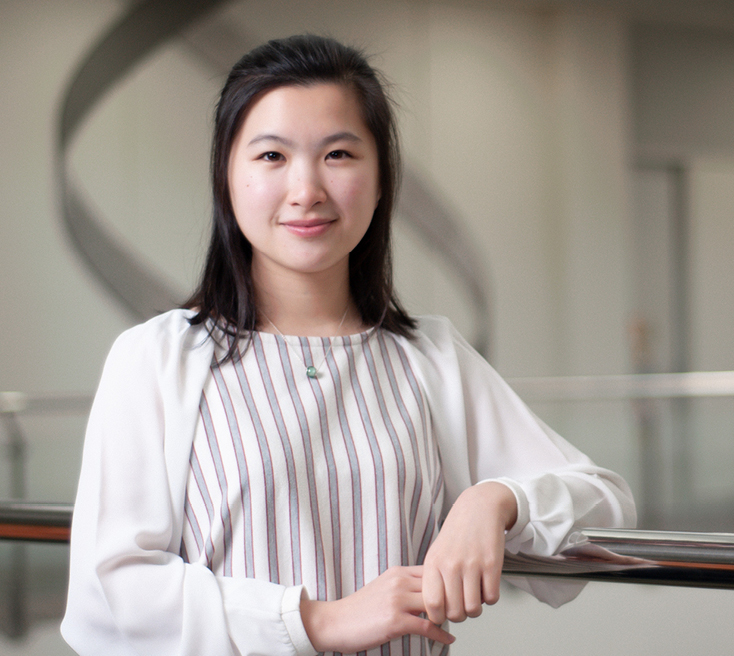2024

Brendan Hung
2024 winner
2024 winner
Brendan Hung is a rising star in polymer science whose research spans biomedical science and engineering. As a first-year PhD candidate at Monash University, Brendan aims to develop a new way to study digestive system disorders by capturing intricate human biology in a dish. Disorders of the intestine – like inflammatory bowel disease and colorectal cancer – are complex, and tricky to mimic in animal models or in a test tube. Brendan plans to engineer innovative hydrogels and combine them with microfabrication techniques to create a more accurate and reproducible model of human intestinal tissue. The model can then be used to study gastrointestinal diseases in closer detail and find new therapies to treat them.
Brendan earned his Bachelor of Biomedical Science and Bachelor of Engineering (with First Class Honours) from Monash University in 2023, achieving an excellent academic record including numerous Dean’s List commendations. He is a superb scientific communicator, leading outreach to high school students and the public through the Monash Forge student team.
Brendan earned his Bachelor of Biomedical Science and Bachelor of Engineering (with First Class Honours) from Monash University in 2023, achieving an excellent academic record including numerous Dean’s List commendations. He is a superb scientific communicator, leading outreach to high school students and the public through the Monash Forge student team.
2023

Laila Halim
2023 Winner
2023 Winner
Laila Halim is passionate about sustainable engineering and creating a healthier planet for future generations. As a first-year PhD candidate at Monash University, she is putting her engineering expertise to work on the plastic waste problem.
When advanced recycling techniques are applied to plastic waste, a complex mixture of smaller chemical components is obtained. Laila’s PhD project investigates how to filter out the useful components using polymeric membrane materials, in place of traditional high energy means of separation. Once isolated, the useful chemical constituents of plastic waste can be valorised into new products across various industries. She is particularly interested in finding ways to upcycle plastic waste for use in the green energy industry.
Laila’s research treats plastic waste as an opportunity rather than a burden and contributes to Australia’s circular economy aspirations. She holds a Bachelor of Engineering and a Bachelor of Science and has a stellar academic record with numerous Dean’s List commendations and scholarships. Laila is strongly community minded, evidenced through her work with the Tech Girls Movement Foundation and Engineers Without Borders.
When advanced recycling techniques are applied to plastic waste, a complex mixture of smaller chemical components is obtained. Laila’s PhD project investigates how to filter out the useful components using polymeric membrane materials, in place of traditional high energy means of separation. Once isolated, the useful chemical constituents of plastic waste can be valorised into new products across various industries. She is particularly interested in finding ways to upcycle plastic waste for use in the green energy industry.
Laila’s research treats plastic waste as an opportunity rather than a burden and contributes to Australia’s circular economy aspirations. She holds a Bachelor of Engineering and a Bachelor of Science and has a stellar academic record with numerous Dean’s List commendations and scholarships. Laila is strongly community minded, evidenced through her work with the Tech Girls Movement Foundation and Engineers Without Borders.

Bailey Richardson
2023 Winner
2023 Winner
Bailey Richardson is a PhD student at Queensland University of Technology.
Inspired by the relationship between light and biology which affords processes such as photosynthesis, Bailey aims to understand the natural designs that allow certain biopolymers to use light efficiently.
By taking inspiration from these designs, he creates novel polymers that can interact with light in similarly specific ways. These materials hold potential to advance our understanding of cellular processes and lead to new ways to diagnose and treat diseases.
With an exceptional academic record and several awards earned during his undergraduate career at Queensland University of Technology, PhD candidate Bailey is well-equipped to take on this polymer challenge. He’s also passionate about science community building, co-founding the QUT chemistry club.
Inspired by the relationship between light and biology which affords processes such as photosynthesis, Bailey aims to understand the natural designs that allow certain biopolymers to use light efficiently.
By taking inspiration from these designs, he creates novel polymers that can interact with light in similarly specific ways. These materials hold potential to advance our understanding of cellular processes and lead to new ways to diagnose and treat diseases.
With an exceptional academic record and several awards earned during his undergraduate career at Queensland University of Technology, PhD candidate Bailey is well-equipped to take on this polymer challenge. He’s also passionate about science community building, co-founding the QUT chemistry club.
2022

Jefferson Lam
2022 Winner
2022 Winner
Jefferson Lam is a PhD student engaged in developing the next generation of solar panels.
Technology has a history of taking cues from nature. Jefferson’s vision of ubiquitous solar energy available at low cost inspired him to examine anew the solar energy harvesting systems of plants, developed over millennia.
His research proposal places polymer science and engineering at the forefront, replicating structures seen in plant biology and applying them onto polymers for use in lightweight solar panels.
Jefferson is intent on achieving an important step in the evolution of next-generation solar devices. He wants to contribute to a revolution in the development and widespread deployment of solar energy at ultra-low cost.
Jefferson has built a solid foundation for his continued work towards this vision. He has two STEM degrees, in materials engineering and chemistry, a strong grounding in polymer sciences and renewable energy, and three Dean’s List awards.
Technology has a history of taking cues from nature. Jefferson’s vision of ubiquitous solar energy available at low cost inspired him to examine anew the solar energy harvesting systems of plants, developed over millennia.
His research proposal places polymer science and engineering at the forefront, replicating structures seen in plant biology and applying them onto polymers for use in lightweight solar panels.
Jefferson is intent on achieving an important step in the evolution of next-generation solar devices. He wants to contribute to a revolution in the development and widespread deployment of solar energy at ultra-low cost.
Jefferson has built a solid foundation for his continued work towards this vision. He has two STEM degrees, in materials engineering and chemistry, a strong grounding in polymer sciences and renewable energy, and three Dean’s List awards.
2021

Georgia Hunter
2021 Winner
2021 Winner
Georgia Hunter is an outstanding PhD student at Monash University with two STEM degrees – a Bachelor of Engineering and a Bachelor of Science – who is working to improve the properties of multi-polymer materials.
She is looking to harness design strategies found in nature and develop numerical models to achieve the most desirable combination of properties. With exciting possibilities unlocked with the advancement in multi-polymer 3-D printing, her research proposal could contribute to the manufacture of polymer materials that are as strong and as tough as natural materials. This has been difficult to achieve using ‘conventional’ manufacturing techniques.
Georgia Hunter is continuing her passion for STEM not only in her work but also by teaching the next generation of engineering students as a university tutor and demonstrator.
She is looking to harness design strategies found in nature and develop numerical models to achieve the most desirable combination of properties. With exciting possibilities unlocked with the advancement in multi-polymer 3-D printing, her research proposal could contribute to the manufacture of polymer materials that are as strong and as tough as natural materials. This has been difficult to achieve using ‘conventional’ manufacturing techniques.
Georgia Hunter is continuing her passion for STEM not only in her work but also by teaching the next generation of engineering students as a university tutor and demonstrator.

Hayden Robertson
2021 Winner
2021 Winner
Hayden Robertson’s PhD program is improving the current understanding of how stimulus-responsive polymers that are grafted onto a substrate to form a “brush” behave in complex media.
Polymer brushes can be used to coat various surfaces including silicon, gold, metal oxides and other polymers. Because their behaviour can be easily controlled and tuned by the presence of different salts or solvents, they have application in many fields, including targeted drug delivery, lubrication, altering the conductivity of a material’s surface and controlling the transport of small particles. They can also be used as anti-fouling agents to keep ship hulls free of contaminants and for organic light emitting diodes in television screens.
Improving the understanding of how stimulus-responsive polymer brushes react in different environments is important as it will lead to the deployment of polymer brushes as smart interfaces with tuneable properties.
As well as conducting his research, Hayden Robertson has also acted as a Student Ambassador for the Bachelor of Science program at the University of Newcastle and been part of the university’s SMART program, delivering science and engineering shows to the general public.
Polymer brushes can be used to coat various surfaces including silicon, gold, metal oxides and other polymers. Because their behaviour can be easily controlled and tuned by the presence of different salts or solvents, they have application in many fields, including targeted drug delivery, lubrication, altering the conductivity of a material’s surface and controlling the transport of small particles. They can also be used as anti-fouling agents to keep ship hulls free of contaminants and for organic light emitting diodes in television screens.
Improving the understanding of how stimulus-responsive polymer brushes react in different environments is important as it will lead to the deployment of polymer brushes as smart interfaces with tuneable properties.
As well as conducting his research, Hayden Robertson has also acted as a Student Ambassador for the Bachelor of Science program at the University of Newcastle and been part of the university’s SMART program, delivering science and engineering shows to the general public.
2020

Charmaine Hee
2020 Winner
2020 Winner
In only her second year of a PhD at the University of Western Australia, Charmaine Hee is working on self-assembling polymers that can be programmed to create complex structures.
Ms Hee’s work is aimed at developing precision and personalised medical solutions through improving understanding of molecular recognition within living cells. Holding a Bachelor of Philosophy with First Class Honours in Chemistry, Ms Hee is also a passionate science communicator who’s been inspiring the next generation of STEM students since the beginning of her undergraduate studies.
The Ezio Rizzardo Polymer Scholarship acknowledges and awards merit and potential impact of an outstanding PhD candidate in polymer science or engineering. It recognises outstanding polymer research in Australia and work that delivers impacts that benefit Australia.
Ms Hee’s work is aimed at developing precision and personalised medical solutions through improving understanding of molecular recognition within living cells. Holding a Bachelor of Philosophy with First Class Honours in Chemistry, Ms Hee is also a passionate science communicator who’s been inspiring the next generation of STEM students since the beginning of her undergraduate studies.
The Ezio Rizzardo Polymer Scholarship acknowledges and awards merit and potential impact of an outstanding PhD candidate in polymer science or engineering. It recognises outstanding polymer research in Australia and work that delivers impacts that benefit Australia.








